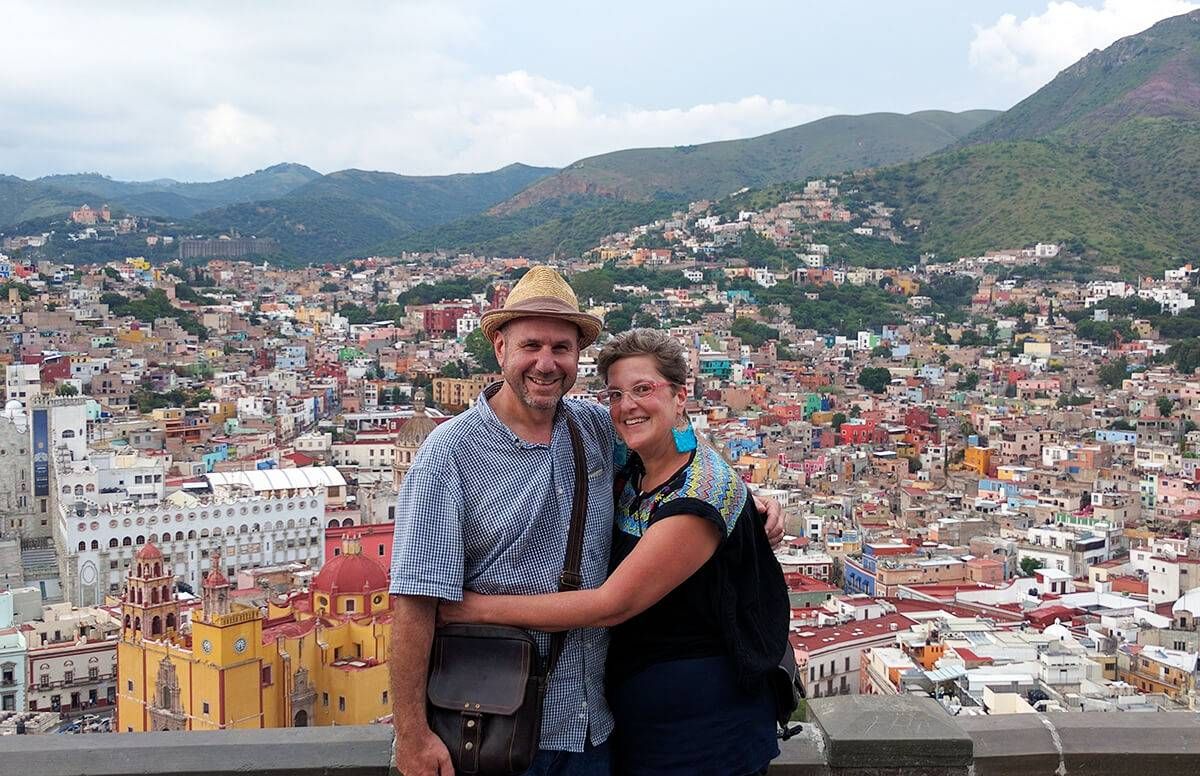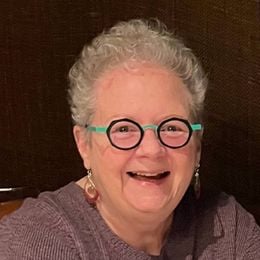Turning an Early 50s Cancer Diagnosis Into a Mexican Retirement
Learning Spanish, housesitting and figuring out life as it comes
"Live your dream now," Stacey Roberts-Ohr's oncologist told her. So shortly after surgery and treatment for advanced-stage ovarian cancer, she and her husband, Andy Altman-Ohr — both in their early 50s — quit their jobs in the San Francisco Bay area and began early retirement in Mexico.

The doctor was thrilled. She told Roberts-Ohr that no one had ever followed her advice before.
The couple relocated to the Mexican Pacific Coast town of Zihuatanejo four months ago. These days, they spend their time exploring their adopted country, learning Spanish and relaxing on a beach or in a coffee shop. The likelihood of recurrence is never far from Roberts-Ohr’s mind, but she says, “I just try not to dwell on it every day, and living abroad is a great diversion.”
I’m in awe.
Some 21 years ago, after treatment for breast cancer I cut back from a five-day workweek to four days. Then, after dealing with a recurrence six years ago, I ripped up my lifelong roots and moved from St. Louis to San Francisco to be near my family. Following my surgeon’s advice, I am aiming to hit 90 as I balance part-time freelance work with a great deal of play.
None of that measures up to Roberts-Ohr’s bold decision, which I learned about when her husband — an editor at a paper I write for — announced he and his wife were retiring and moving to Mexico. My admiration for them grows stronger as time goes by. That’s the point. Time always goes by, and more quickly than we realize.
Roberts-Ohr’s story, I think, has something to teach all of us. “Don’t let fear stop you,” she says. “Be happy.” Not a bad way to live life.
A Dream Comes True
Roberts-Ohr was diagnosed in May 2015. At the time, she was executive director of a nonprofit. She underwent a total abdominal hysterectomy and endured 18 weeks of chemotherapy. After that, she decided it didn’t make sense to continue to work in a high-stress job and perhaps face a recurrence before first living life to the fullest.
“For us, that meant moving abroad,” she says. “My oncologist’s frank words were the wake-up call we needed.”
Retiring to Mexico (or somewhere else with sun, sand and beachside cantinas) has been the plan since the couple married almost 20 years ago. In their early years together, they served in the Peace Corps in Jamaica. And for years, they’ve spent vacations in Zihuatanejo, where Roberts-Ohr’s mother lives six months a year.
How’s it going?
In a recent post on her blog, “Believe It Ohr Not: A Moving Journal,” Roberts-Ohr wrote, “We are having an absolute blast. Most mornings we wake up and the day is ours. We like to start each day with coffee out of the house. We sit on beautiful colonial squares, we bask in the sunshine…we read. We pinch ourselves and ask, ‘Did we really make this happen?’”
They did, but only after spending a lot of time spent crafting a budget. Neither is yet eligible for Social Security and, since they’re not yet 59 ½, it’s too soon to withdraw any money from their 401(k)s without penalties. So they had to be creative.
Early Retirement Requires Money Management
Here’s how: They rented out their home in Oakland for some extra income. Roberts-Ohr picks up freelance consultant jobs and occasionally writes grant proposals. Two days a week, Altman-Ohr works as a copy editor for the paper where he once served as managing editor. Their rental income and freelance work cover daily living expenses.
Also, not long after moving to Zihuatanejo, the couple accepted a short-term housesitting job for six weeks. The house came with two dogs, and though they’ve never had pets, the pair quickly learned to adapt and ended up being great pals with their canine charges.
Since then, on their travels to Patzcuaro, Morelia, Guanajuato and other cities, they’ve sought out inexpensive lodging and pinched pennies, with one exception. In the tiny town of Santa Cruz, where Roberts-Ohr met indigenous women making beautiful hand-embroidered blouses and skirts, she splurged on two pieces of clothing perfect for the climate.
Still, day-to-day frugality — and encouragement from their financial adviser — keeps monetary fears at bay most of the time.
Wealth of another kind is readily available. Everywhere they travel in Mexico, the couple is impressed with the warmth and hospitality of the people they meet. They savor the art, the architecture and the history. They attend music festivals and enjoy sampling local cuisine. Even at the nicer restaurants in towns frequented by tourists, meals cost far less than in the U.S.
Is this the ideal life or what?
Yes and no.
Even a Dream Life Brings a Few Ordeals
It took a while for the couple to get acclimated to the heat and humidity. A bedroom window in an apartment they rented for five weeks leaks badly every time it rains, and the landlord is not inclined to fix it. The refrigerator leaks water onto the shelves. And the bathrooms sometimes smell of sewage.
Roberts-Ohr misses some foods (store-bought hummus and artisan bagels, specifically) and a few products that are readily available in the U.S. are hard to find. Sometimes, she also misses having lunch or cocktails with old friends, taking walks around Oakland and “listening to the top-of-the-hour news on the radio.”
Still, the couple agrees that making the move to Mexico was a terrific decision for them.
“We feel free,” Roberts-Ohr wrote in her blog. “We feel deliriously in love. All of these beautiful colonial cities have turned us back into hand holders — plus the pavement is so uneven, I’m doomed to trip if I’m not holding onto Andy tightly.”
Though Roberts-Ohr’s cancer is in remission, her health must be monitored. She found an English-speaking oncologist in Morelia, and schedules an appointment every three months. At her first visit, she was impressed when the doctor gave her his email address and phone number and asked to “friend” her on Facebook.
A Look Back and Ahead
On her first “cancerversary” — one year after her abdominal hysterectomy in 2015 — Roberts-Ohr celebrated in Ixtapa with a fancy dinner out with Altman-Ohr, which included a shot of pricey tequila and a toast to the future.
In honor of the occasion, Roberts-Ohr also wrote a blog post urging women to be aware of the symptoms of ovarian cancer, with a link to a page that spells them out.
Now Roberts-Ohr is calling on her background in social work to mentor other women who move abroad after a diagnosis.
“I want them to know they can live their dream even if they are scared,” she says. “Maybe I could encourage women to make major life changes and also offer advice about getting rid of possessions, finding housing and building a new support system.”
What happens if her cancer returns?
“I’ll be devastated, but I also will know that I did not allow my diagnosis to quash my dream,” she says. “For now, I’m enjoying life immensely with my supportive and loving spouse. We’re figuring this out together.”


